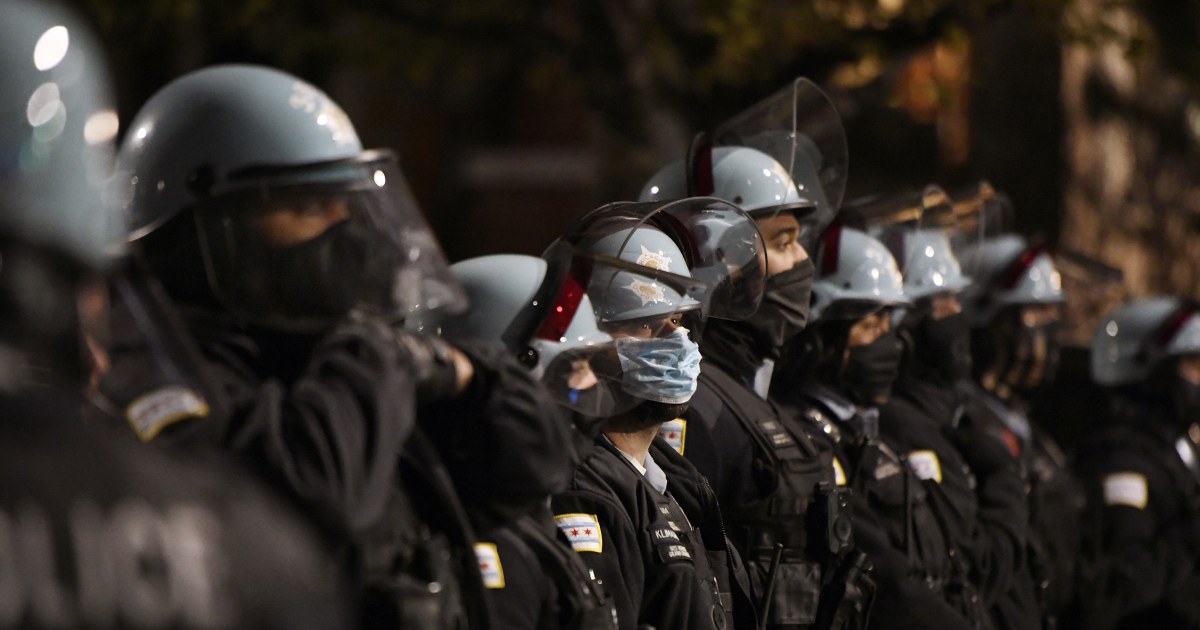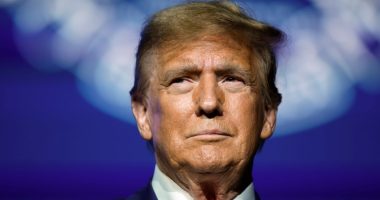
WASHINGTON — Less than a month after the murder of George Floyd, President Donald Trump sat in the Rose Garden and signed an executive order that required police departments establish accreditation and accountability standards to receive federal funding.
Sen. Tim Scott, R-S.C., attended and afterward praised the order saying it would “provide real solutions so fewer families are sitting in the White House talking about the lost loved ones.” A little more than a year later, Scott, the chief Republican negotiator in an effort to turn police reform into law, rejected a Democratic offer that would codify that same executive order.
Democrats were mystified, and it led them to believe that Scott had no interest in reaching a deal — the final straw for Sen. Cory Booker, D-N.J., who made the decision this week to abandon negotiations.
It was the final death knell for an effort to pass sweeping bipartisan police reform that once was heralded with great hope but appeared to have missed the moment, crushed by political pressures that made it impossible for the two sides to find common ground.
“When the other side wouldn’t even codify Donald Trump’s executive order into law because it went to far, they clearly weren’t serious about creating meaningful reform,” Sen. Brian Schatz, D-Hawaii, told NBC News.
A spokeswoman for Scott said the Trump executive order language equated to defunding the police. “Disqualifying police departments from (federal) grants cuts off a crucial funding stream,” Caroline Anderegg, Scott’s press secretary, said in a text message.
“Defund the police” has become a politically charged phrase.
It began as the mantra of some pro-police reform protesters in the wake of Floyd’s murder. But it quickly morphed into the rallying cry of Republicans, who argued Democrats wanted to make America less safe by stripping police departments of resources to fight crime.
Scott, in a statement after the negotiations ended Thursday, twice charged Booker and Democrats as wanting to defund the police. The various Democratic proposals provided hundreds of millions of dollars for police departments to address mental health, create misconduct databases and increase training.
But negotiations ran into political and cultural headwinds that doomed the chance of success.
“I thought they were headed toward a place where Congress would have set at least some new standards but it could BE that there’s less pressure on that issue than there was six months AGO when those talks were at their highest boiling point,” Sen. Roy Blunt, R-Mo., said
Police accountability and transparency measures gained national momentum after the killing of Floyd. But a year later, public sentiment started to shift as summer crime spikes in cities made the politics of police reform more complicated.
The end of talks was devastating for Floyd’s family. “We were just extremely disappointed at this point because as you know, since March we’ve been optimistic,” Shareeduh Tate, George Floyd’s cousin and president of the George Floyd Foundation, said on MSNBC. “We’ve been very patient as everyone else has watching this process kind of play out.”
That crime wave and sentiment shift occurred at a critical time in negotiations when Booker in June notched a critical agreement with the Fraternal Order of Police on the issue of qualified immunity. Despite saying he would back what the fraternal order agreed to, Scott didn’t accept it. Scott changed the goal posts, saying that the sheriffs associations had to support it, too. But the sheriffs groups have long been ignored in criminal justice discussions because of their ardent opposition. They even rejected the Trump-era First Step Act, which Scott helped to negotiate.
The increase in crime “hurt Democrats because it was used even though it had absolutely nothing to do with police reform,” Rep. Karen Bass, D-Calif., a member of the negotiations told NBC News. “It was used as a talking point and it was used during campaigns.”
Scott is up for re-election in 2022. While he is likely to easily win his race as the most popular elected official in the state of South Carolina, there are bigger issues at play. Scott’s positions now could have broader implications for the Republican Party. In the evenly divided Senate, Republicans think a tough on crime position could help them take control of the chamber.
Several House Democrats who either lost or nearly lost their re-election in swing districts have said that the ‘defund’ message hurt them politically. And in the Virginia governor race between Democrat Terry McAuliffe and Republican Glenn Younkin that polling shows as nearly tied, crime has been a central issue.
Since the critical juncture in June, negotiations became more difficult and sporadic. Things that had been agreed to were put back on the table and open for discussion, including no-knock warrants. By the end of July, the only thing agreed to between the two senators was to ban chokeholds.
Realizing comprehensive police reform was unrealistic, in early August both Scott and Booker publicly floated a “skinny,” scaled down version. No-knock warrants and qualified immunity were no longer on the negotiating table.
Booker presented the slimmed down version to Scott, which including the Trump executive order on accreditation, money for mental health, limiting the transfer of military equipment to police departments and a ban on chokeholds. Scott said no.
The political will was gone. So was the momentum.
“I think we should have been able to do something when the momentum was there — last year,” Bass said.
Last year Republicans controlled the Senate and the White House. Democrats rejected Scott’s police reform bill, which consisted mostly of studies and recommendations to change police behavior. Democrats bet that they’d retake the White House and the Senate and have a stronger bill. They only accomplished one of those goals.
Source: | This article originally belongs to Nbcnews.com









